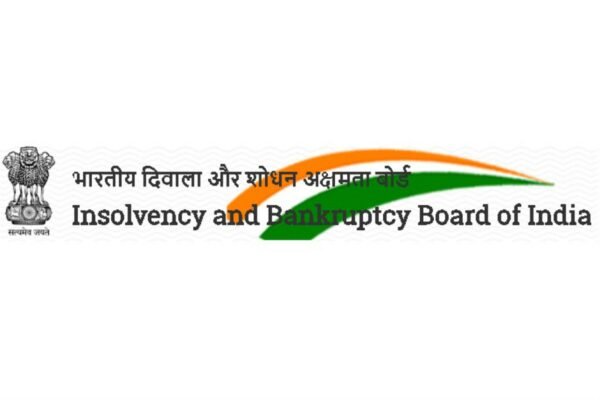Know About Insolvency and Bankruptcy Board of India

Insolvency and Bankruptcy Board of India (IBBI)
The Insolvency and Bankruptcy Board of India (IBBI) is a statutory body established on October 1, 2016, under the Insolvency and Bankruptcy Code, 2016 (IBC). It plays a pivotal role in regulating insolvency and bankruptcy proceedings in India for corporate entities, partnership firms, and individuals. The primary objective of the IBBI is to ensure time-bound resolution of insolvency, maximize asset value, promote entrepreneurship, and balance the interests of all stakeholders.
Key Functions of IBBI
The IBBI performs several critical functions under the IBC framework:
Regulation of Professionals and Agencies: It oversees insolvency professionals (IPs), insolvency professional agencies (IPAs), insolvency professional entities (IPEs), and information utilities (IUs). It registers these entities, specifies eligibility criteria, conducts examinations, and can suspend or cancel registrations.
Rulemaking and Enforcement: The Board frames and enforces rules for processes such as corporate insolvency resolution, corporate liquidation, individual insolvency resolution, and individual bankruptcy. It ensures compliance with the Code by professionals and agencies involved.
Data Management: IBBI collects, maintains, and disseminates records related to insolvency and bankruptcy cases. It specifies mechanisms for storing data by information utilities.
Grievance Redressal: It provides mechanisms to address complaints against IPs, IPAs, and IUs. The Board can pass orders to ensure compliance with the Code.
Development of Valuation Profession: The IBBI is designated as the authority under the Companies (Registered Valuers and Valuation Rules), 2017 to regulate valuers in India.
Research and Audits: Conducting studies, audits, and research on the functioning of IPs, IPAs, and IUs to improve efficiency.
Structure of IBBI
The Governing Board of IBBI comprises ten members appointed by the Central Government:
A Chairperson
Three whole-time members
One member nominated by the Reserve Bank of India (RBI)
Five members from various ministries (Finance, Corporate Affairs, Law) with three functioning as full-time members.
The Chairperson and members serve for five years or until they reach 65 years of age, whichever is earlier. They are eligible for reappointment.
Unique Features
The IBBI is distinctive in its dual role:
Regulating both professionals involved in insolvency processes.
Supervising the processes themselves to ensure adherence to time-bound resolutions under the Code.
Recent Developments
In April 2021, the IBBI introduced regulations for pre-packaged insolvency resolution processes specifically tailored for MSMEs. These regulations aim to simplify insolvency proceedings while ensuring independence among professionals involved.
The Insolvency and Bankruptcy Board of India serves as a cornerstone in India’s insolvency ecosystem by ensuring efficient resolution processes while promoting transparency and accountability among stakeholders.
The Insolvency and Bankruptcy Board of India (IBBI) is a key institution in India’s financial and corporate regulatory ecosystem.
What is the IBBI?
The Insolvency and Bankruptcy Board of India (IBBI) is the regulator for insolvency proceedings and insolvency professionals in India. It was established under the Insolvency and Bankruptcy Code (IBC), 2016, a landmark reform that consolidated and amended laws related to reorganization and insolvency resolution of corporate persons, partnership firms, and individuals in a time-bound manner.
Key Objectives
Protect the interests of creditors, including financial and operational creditors.
Promote entrepreneurship and availability of credit.
Ensure time-bound resolution of insolvency.
Improve the ease of doing business in India.
Enhance transparency and accountability in the insolvency resolution process.
Functions of the IBBI
Regulation & Development:
Regulates Insolvency Professionals (IPs) and Insolvency Professional Agencies (IPAs).
Regulates Information Utilities (IUs) that store financial information.
Framing Regulations:
Drafts and enforces regulations related to insolvency processes under the IBC.
Oversight Role:
Monitors performance of service providers and ensures compliance.
Grievance Redressal:
Acts on complaints against IPs, IPAs, and IUs.
Structure of the IBBI
It consists of a Chairperson and members representing:
The Ministry of Finance
The Ministry of Corporate Affairs
The Reserve Bank of India
And other experts from the field of law, finance, economics, etc.
Key Processes under IBC (Supervised by IBBI)
Corporate Insolvency Resolution Process (CIRP)
Liquidation of corporate debtors
Insolvency resolution for individuals and partnerships (in phased rollout)
Fast-track resolution process
Voluntary liquidation
Importance of IBBI in India’s Economy
Helped resolve high-profile NPAs (Non-Performing Assets).
Improved India’s Ease of Doing Business rankings.
Strengthened the credit culture.
Brought more discipline among borrowers and clarity for lenders.
